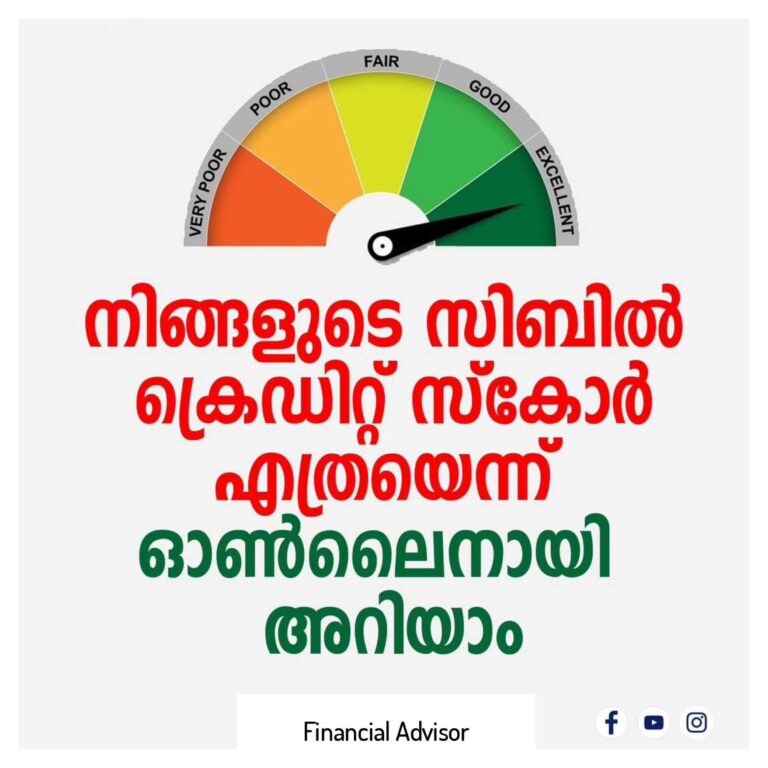A CIBIL score is a three-digit number that reflects an individual’s creditworthiness. It is calculated by credit bureaus, including CIBIL, based on an individual’s credit history. The credit history includes factors such as credit utilization, repayment behavior, credit mix, length of credit history, and recent credit inquiries.
Importance of CIBIL Score
A CIBIL score plays a crucial role in an individual’s financial life. It is used by lenders to assess an individual’s creditworthiness and make lending decisions. A high CIBIL score indicates a lower risk of default, making it more likely for the lender to approve a loan or credit application with favorable terms and interest rates.
A low CIBIL score, on the other hand, indicates a higher risk of default, making it more difficult to get approved for credit, and the terms and interest rates may not be as favorable. Therefore, maintaining a good CIBIL score is essential for individuals to have access to credit and to get favorable terms and interest rates.
How is CIBIL Score Calculated?
CIBIL score is calculated based on an individual’s credit history, which includes various factors. These factors and their weightage are as follows:
- Payment History (35%): This factor considers an individual’s repayment behavior and whether they have paid their credit obligations on time or not. Late payments or missed payments negatively impact the CIBIL score.
- Credit Utilization (30%): Credit utilization refers to the percentage of credit limit used by an individual. A higher credit utilization ratio can negatively impact the CIBIL score.
- Credit Mix (10%): Credit mix refers to the types of credit an individual has, such as secured loans, unsecured loans, and credit cards. A good credit mix can positively impact the CIBIL score.
- Length of Credit History (15%): The length of credit history refers to the duration for which an individual has held credit accounts. A longer credit history can positively impact the CIBIL score.
- Recent Credit Inquiries (10%): This factor considers the number of credit inquiries made by an individual in the recent past. Multiple inquiries can negatively impact the CIBIL score.
CIBIL Score Range
The CIBIL score ranges from 300 to 900, with a score above 750 considered as a good score. The score range and the interpretation are as follows:
- 750 and above: Excellent Credit
- 700-749: Good Credit
- 650-699: Fair Credit
- 600-649: Poor Credit
- Below 600: Bad Credit
How to Improve CIBIL Score?
Here are some tips to improve the CIBIL score:
- Pay bills on time: Make sure to pay credit obligations on time as late payments can negatively impact the CIBIL score.
- Keep credit utilization low: Keep credit utilization below 30% to maintain a good CIBIL score.
- Maintain a good credit mix: Have a mix of secured and unsecured credit accounts to maintain a good CIBIL score.
- Avoid too many credit inquiries: Limit the number of credit inquiries made in the recent past to maintain a good CIBIL score.
- Why is the CIBIL score important?
The CIBIL score is important because it helps lenders assess an individual’s creditworthiness and make lending decisions. A high CIBIL score indicates that an individual is likely to repay their credit obligations on time, making them less risky to lend to. As a result, individuals with high CIBIL scores are more likely to get approved for loans and credit with favorable terms and interest rates. In contrast, individuals with low CIBIL scores may find it difficult to get approved for credit or may be offered credit with less favorable terms and higher interest rates. - Who calculates the CIBIL score?
CIBIL is one of the credit bureaus in India that calculates the CIBIL score. Other credit bureaus in India include Experian, Equifax, and CRIF High Mark. These credit bureaus collect credit-related information from various sources, such as banks and other financial institutions, and use this information to calculate an individual’s credit score. - How often is the CIBIL score updated?
The CIBIL score is updated periodically, typically every 30 to 45 days. This means that changes to an individual’s credit history, such as missed payments or new credit accounts, can impact their CIBIL score relatively quickly. Individuals can check their CIBIL score online or through other channels to see their current score and monitor any changes over time. - How does credit utilization affect the CIBIL score?
Credit utilization refers to the amount of credit an individual is using compared to their total credit limit. High credit utilization can negatively impact the CIBIL score because it suggests that an individual is relying heavily on credit and may be at risk of defaulting on their credit obligations. As a result, it’s generally recommended that individuals keep their credit utilization below 30% of their total credit limit. - What is a credit report, and how does it relate to the CIBIL score?
A credit report is a detailed record of an individual’s credit history, including information about their credit accounts, payment history, and credit inquiries. Credit bureaus like CIBIL use this information to calculate an individual’s credit score. Checking one’s credit report regularly can help identify any errors or inaccuracies that may be negatively impacting their credit score. It’s also a good way to monitor for any signs of identity theft or other fraudulent activity. In India, individuals are entitled to one free credit report per year from each of the four credit bureaus mentioned earlier.
I hope this additional information helps clarify some of the key aspects of the CIBIL score and its importance in the Indian financial system.
In conclusion, a CIBIL score plays a crucial role in an individual’s financial life. It is used by lenders to assess an individual’s creditworthiness and make lending decisions. Maintaining a good CIBIL score is essential for individuals to have access to credit and to get favorable terms and interest rates. It is important to pay
The Reserve Bank of India (RBI) has authorized four credit information companies (CICs) in India to provide credit reports and credit scores to individuals and businesses. These four CICs are:
- Credit Information Bureau (India) Limited (CIBIL)
- Equifax Credit Information Services Private Limited
- Experian Credit Information Company of India Private Limited
- CRIF High Mark Credit Information Services Private Limited
All of these CICs are authorized and regulated by the RBI, and are considered reliable sources of credit information.
here are step-by-step instructions on how to obtain your credit report and score from CIBIL:
- Visit the CIBIL website at www.cibil.com
- Click on “Get Your CIBIL Score” button on the homepage
- You will be redirected to a new page where you can see the different subscription plans offered by CIBIL
- Choose the subscription plan that suits your requirement and click on “Subscribe Now”
- On the next page, you will be required to fill out a form with your personal information such as name, address, date of birth, PAN card number, etc.
- After filling out the form, click on “Proceed to Payment”
- Choose the payment method and complete the payment process
- Once the payment is successful, you will be redirected to a page where you can view your CIBIL score and credit report
- Download your credit report and score for future reference.
It’s important to note that you can obtain one free credit report per year from each of the four authorized credit information companies in India, including CIBIL. To obtain your free credit report, you can visit the website of any of the four authorized CICs and follow the instructions provided. You will be required to provide your personal information and ID proof to verify your identity.



Comments are closed.